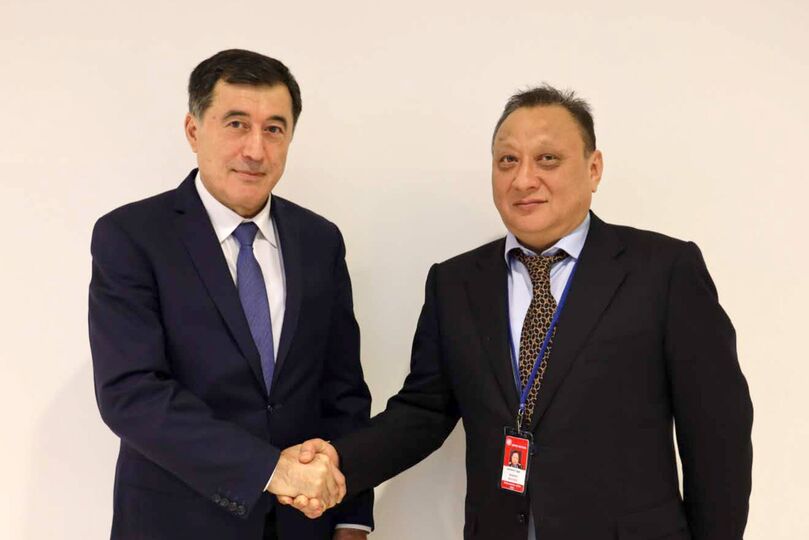On 2 March 2020, SCO Secretary-General Vladimir Norov met with Police Major-General Tlegen Matkenov, Head of the Department for Combating Drug Crime of the Ministry of Internal Affairs of Kazakhstan, on the sidelines of the 63rd session of the UN Commission on Narcotic Drugs.
The officials thoroughly exchanged views on the developments taking place in the region, the implementation of the 2017-2022 SCO Anti-Drug Strategy and the Programme of Action for its implementation, as well as deepening the interaction of competent authorities in combating drug trafficking and their precursors.
Mr Norov briefied the interlocutor on the SCO Secretariat's work aimed at developing proposals to improve the anti-drug interaction system, exchanging information and guides, and holding conferences, seminars, round tables and trainings to combat drug trafficking.
The Secretary-General praised Kazakhstan's contribution to the development of anti-drug cooperation within the SCO and noted that a large number of practical activities were being carried out at Kazakhstan's initiative. In particular, he mentioned the first international operation Spider Web in July 2019, during which the participants trained to eliminate the supply and distribution channels of psychoactive substances, synthetic and other drugs, including using the internet and electronic payment systems.
The Secretary-General noted the effectiveness of these exercises and said that this operation will be held for the second time in late March in 2020 as part of Russia's SCO chairmanship.
In turn, Tlegen Matkenov thanked the SCO Secretariat for supporting Kazakhstan's initiatives. He added that Nur-Sultan is ready to continue to contribute to a consistent solution to the global problem of trafficking in prohibited substances.
He gave a positive assessment of the joint event "The SCO and the UNODC in the fight against the illicit drug threat: Countering drug trafficking via the Dark Net, the Internet's shadow segment."
Mr Norov and Mr Matkenov agreed on the need to intensify cooperation within the SCO to train highly qualified specialists to effectively combat crimes related to the use of information and telecommunication networks, as well as to introduce appropriate technologies in the Organization's member states.
